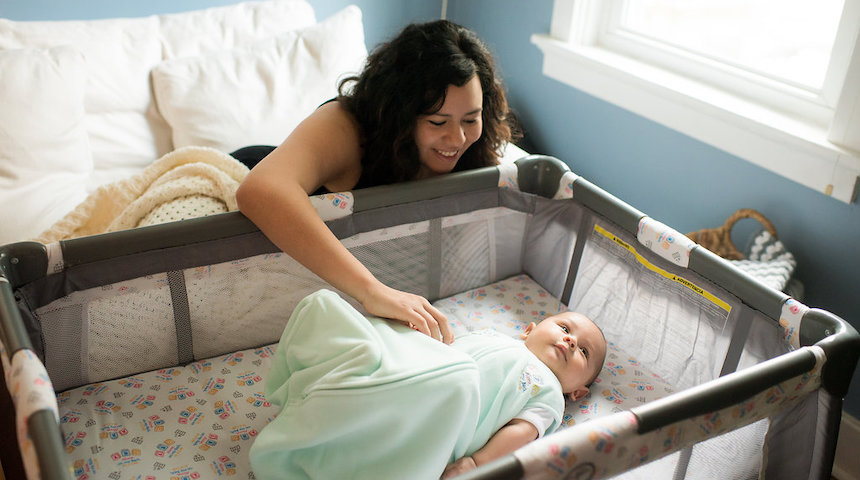For Women Only: 3 Tips for Safe and Savvy Holidays
With visions of twinkling lights and hearty traditional foods, you might pump up the volume on “Alice’s Restaurant” and “Sleigh Ride” as you head to celebrate at a relative’s home or a vacation spot. Beware built-in hazards so you can have the smartest and safest holiday season possible.
Fatty Foods? Watch Your Gallbladder
Whether you’re 20 or 90, slim or hefty, you should be mindful of how much full-fat food you’re eating. That might be buttery gravy, stuffing or mashed potatoes, not to mention pork-laced collards, creamy pies, sizzling potato pancakes and all those homemade cookies. Also: eggnog, that scrumptious beverage.
You know the dangers of overeating unhealthy food: higher weight and cholesterol. But there’s another potential problem – especially for women: gallbladder issues.
Your gallbladder is a quiet little pear-shaped organ that might go into overdrive when you overdo on the fat-filled foods. Here’s why:
- Being a woman is a risk factor. It’s no longer politically correct to say, but medical students have long memorized the risk factors for gallbladder disease with the mnemonic Five Fs: fair, fat, female, fertile and forty. Women are two to three times more likely to have gallbladder issues than men are.
- One fatty meal can be the last straw. Your gallbladder’s job is to store bile, then shoot that bile into your stomach to break down the fat you eat. It suddenly has to work harder when you stuff yourself or go wild with rich helpings from the holiday table. Within an hour, your midsection might start feeling weird. That might stop soon afterward, but it could indicate that your gallbladder is inflamed and/or creating gallstones, which are stone-like balls made from crystals that form from fatty substances in your system. It’s both dangerous and painful if one of those stones gets stuck in the wrong place.
- You might have unknown risk factors. Since gallbladders often cause no problems until they’re on the verge of needing to be removed, you might not know to keep it calm by eating lean. If family members have had their gallbladders out, you’re at risk, too. Other risk factors: obesity, as the Five Fs indicate; rapid weight loss; certain types of estrogen from birth control pills or IUDs (although research results are inconclusive); pregnancy or hormone treatments; having Native American or Scandinavian genes; cholesterol drugs; and metabolic diseases such as diabetes, Crohn’s disease and hyperparathyroidism.
Feeling Frisky? Choose Your Partner Wisely
You’re back in your hometown for a few days. You flirt with your ex-spouse or a high school sweetheart. “This is a safe person,” you think. “We’ve known each other forever and have been together many times.”
That once-again lover could now have a sexually transmitted disease. A one-day dalliance can easily lead to chlamydia. That in turn can end your chances of conceiving, cause an ectopic pregnancy or even spread chlamydia to your future baby.
Chlamydia is treatable, but you’re far better off not getting it to begin with. Insist any potential partner get tested for STDs, and, if it’s a man, make sure he wears a condom — whether you’re expecting vaginal, anal or oral sex, including early withdrawal. Just because a penis looks safe doesn’t mean it is.
Plenty of other STDs are easily transmitted. Among them:
- Gonorrhea
- Syphilis
- Herpes
- HIV
- Bacterial vaginosis
Pregnant? Assess Your Destination
If your pregnancy is trouble-free, most airlines will welcome you onboard through your 35th week. Unexpected challenges can happen at any time, from miscarriage to eclampsia. For that reason, it’s best to assess whether your destination is a place you’ll be OK in if you’re grounded due to pregnancy complications — no matter what gestational stage.
For example, while it’s not likely if your pregnancy has been trouble-free, you could go into labor early. Then your baby might need to stay in the NICU while you lodge somewhere nearby.
Look into the following, in any geographic market:
- At least one local NICU, or Neonatal Intensive Care Unit, the term for a hospital ward dedicated to newborn babies needing intensive care
- An affordable place to stay, whether a friend or family member’s home, a hotel, a rental house or a facility designed for families of hospitalized children
- A place you wouldn’t mind being in for a period of time. For example, if you’re a beach person and get stuck in a waterfront community, you might be OK with that. But, if you don’t enjoy the mountains, consider stalling that trip to the Colorado Rockies until after your baby is born.
- Access to the support you’ll need. Would you have at least one person nearby who could help you if necessary?
- Work adaptability. Let’s say you’ll be moving back and forth from the NICU for several days or weeks. Will you have what you need, including permission and equipment, to work remotely?
Make a few smart decisions, and you can proceed to the upcoming holiday festivities with a big smile and a wise game plan.




